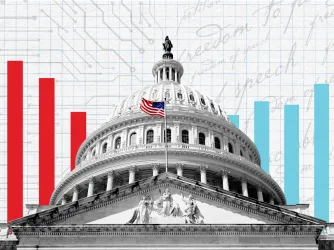Table of Contents
Secret Syllabus Investigation at Brooklyn College Exemplifies ‘Frightening’ Expansion of Title IX

Like many professors, Brooklyn College (BC) geology professor David Seidemann has a grading rubric in his syllabus that accounts for students’ effort:
Class deportment, effort etc……. 10% (applied only to select students when appropriate).
But very much unlike any other case we’ve seen at FIRE, this seemingly innocuous grading criteria landed Seidemann at the center of a Title IX investigation for sexual harassment. What’s more, Seidemann was only contacted about the investigation after the investigation was completed and an outcome had already been reached: Seidemann would be required to change his syllabus.
Seidemann writes for Minding the Campus that what happened when he tried to learn more about the allegations against him—ones that appear to have been dropped once Seidemann started asking questions— is a testament to the fact that “the college’s system for investigating charges of sex bias and sexual harassment fails to meet requisite standards for due process, transparency, and accountability and needs to be fixed.”
According to Seidemann, despite repeated requests for documentation of any complaints filed against him, BC’s director of diversity investigations and Title IX enforcement would only suggest in-person meetings and appeared to bristle at putting anything in writing. The director also claimed that no formal charges were ever filed and denied investigating the syllabus altogether. But when Seidemann then sought clarification from his department chair, the chair disclosed that the investigation had, in fact, come at the director’s behest.
When Seidemann confronted the director about the allegations, he responded: “My office considers the matter to be closed.”
BC professor KC Johnson, who is one of Seidemann’s colleagues, called the investigation “frightening.”
“The incident is problematic in two separate respects,” Johnson said. “First, it was a secret investigation. Secrecy is always a concern where the professor was not informed until after the investigation had taken place. Second, to me, it’s part of this expansion of Title IX to cover areas it couldn't conceivably cover.”
“It's extraordinary,” Johnson added. “By that rationale, anything could be considered a violation of Title IX.”
FIRE has been vocal about both of these issues. On the need for basic due process protections in Title IX investigative hearings, we have repeatedly said that faculty and students facing serious charges like sexual harassment deserve to be, for example, presented with the charges against them so that they can formulate a defense. They should also have the right to counsel, and the ability to cross-examine their accusers.
This particular case also highlights what can happen when the Department of Education’s Office for Civil Rights’ overly broad definition of sexual misconduct, which can encompass a range of constitutionally protected speech, comes with the threat that institutions will lose federal funding if they fail to thoroughly investigate all Title IX sexual misconduct claims.
Johnson says this case underscores the need for Title IX reform:
“This has been a statute that has been reinterpreted beyond all definition in the last 5 years,” said Johnson. “We are a public institution. Even Title IX doesn't supercede the Constitution. It doesn't supercede academic freedom. It doesn't supercede basic protections of civil liberties [like] free speech and due process. There needs to be a recalibration of Title IX back to respecting constitutional norms.”
FIRE will continue to watch this case for developments.
For more information about how Title IX is being misused in ways that threaten free speech and due process on campus, check out FIRE Executive Director Robert Shibley’s new book, Twisting Title IX.
Recent Articles
Get the latest free speech news and analysis from FIRE.

FIRE POLL: Americans overwhelmingly want free speech protected in AI regulation

You talkin’ to me? New York City official wants to turn yellow cabs into speech police.

Two Universities. Two Posters. One First Amendment Problem.
